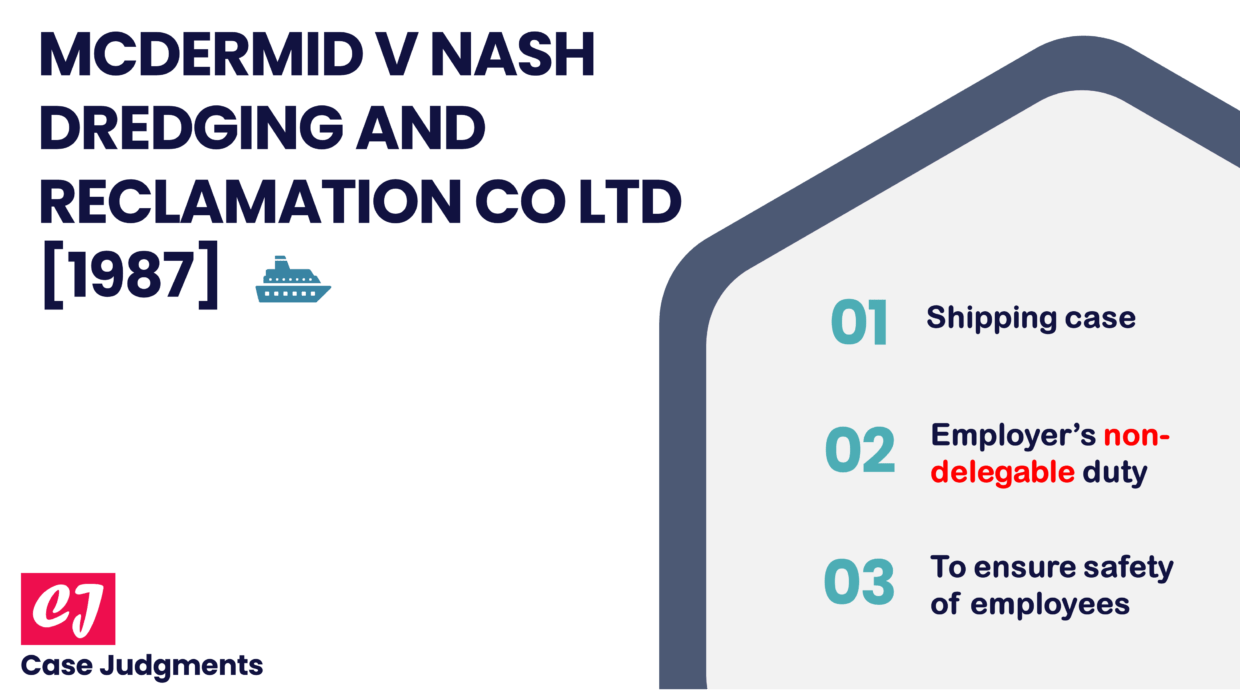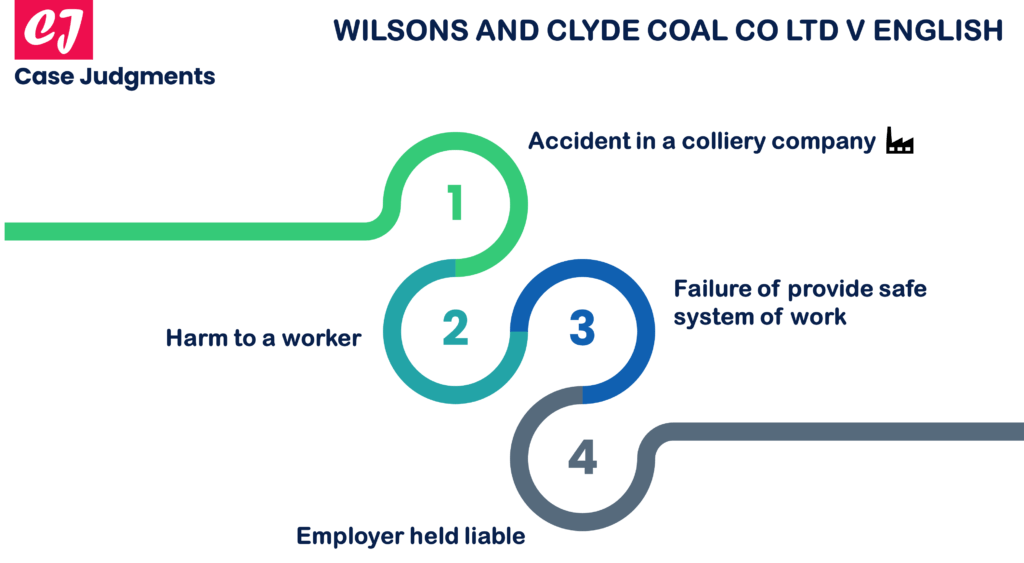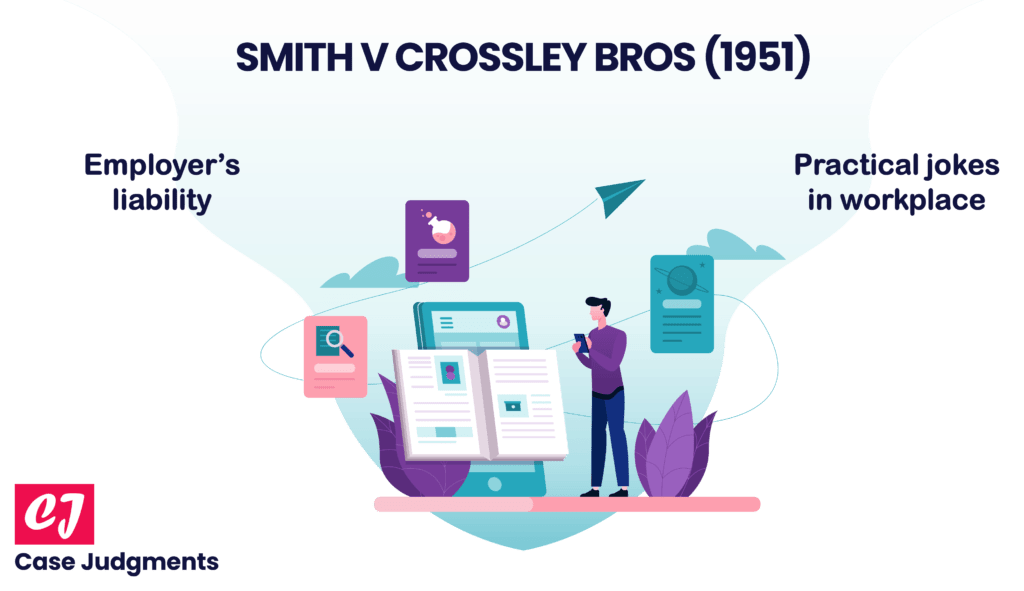
McDermid v Nash Dredging and Reclamation Company Ltd [1987]
Case name & citation: McDermid v Nash Dredging and Reclamation Company Ltd [1987] AC 906
Court and jurisdiction: House of Lords, England & Wales
Year of the case: 1987
The learned judge: Lord Brandon
Area of law: Employer’s liability
What is the case about?
This is a UK tort law case where it was decided that an employer was not permitted to delegate its duty to take reasonable care to devise a safe system of work and to see that it was operated. The Court emphasized the duty that an employer has towards his workers in terms of ensuring their safety.
Facts of the case (McDermid v Nash Dredging and Reclamation Co Ltd)
The plaintiff was employed as a deckhand by the defendants. He was assigned to work on a rig that was owned by a Dutch company and under the direction of a Dutch Captain who was employed by that Dutch company. Obviously, the plaintiff was not aware that he was no longer working on one of his employer’s boats with one of “their” captains. The plaintiff sustained severe injuries when, due to the Dutch captain’s carelessness, a rope that the plaintiff was untying as the rig moved off wrapped itself around his legs.
The plaintiff, thus, brought an action for damages for personal injuries against the employer.
Issue
Were the defendant employers liable for the plaintiff’s injury?
Contentions of the defendants
The employers denied responsibility on the grounds that they were not vicariously liable for the conduct & negligence of someone else’s employee. The captain was employed by the Dutch company. From the facts of the case, it may be noted that the defendant employers were a subsidiary of the Dutch company (which was believed to be the third-party tugboat owner).
Judgment of the Court in McDermid v Nash Dredging and Reclamation Co Ltd
The House of Lords determined that the defendant employers were responsible for the plaintiff’s injuries on the basis that the evidence demonstrated that the plaintiff was injured as a result of there being no safe system of work in operation. His employers did not fulfill their duty to devise and operate such a system, which was incumbent upon them.
The court summed up the essential characteristics of the employer’s non-delegable duty in the following way:
“… if it is not performed, it is no defense for the employer to show that he delegated its performance to a person, whether his servant or not his servant, whom he reasonably believed to be competent to perform it. Despite such delegation, the employer is liable for the non-performance of the duty.”
List of references:
- https://core.ac.uk/download/pdf/234651921.pdf
- https://vlex.co.uk/vid/mcdermid-v-nash-dredging-793913109
- https://www.isurv.com/directory_record/4288/mcdermid_v_nash_dredging_ltd
You might also like:
More from tort law:

